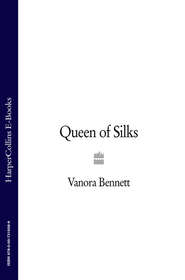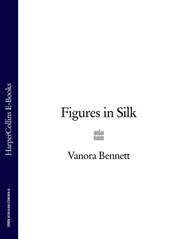По всем вопросам обращайтесь на: info@litportal.ru
(©) 2003-2024.
✖
Portrait of an Unknown Woman
Настройки чтения
Размер шрифта
Высота строк
Поля
The looks Father gave me were as kindly as ever, the encouragement he gave to my studies just as heartwarming. But I knew he was more at ease with talk of philosophy and public expressions of goodwill than with private feelings, and I found that I wasn’t brave enough to take him aside and venture into the personal. I couldn’t find the courage to ask for more information about why John, the first adult I’d made a bond of friendship with – someone whose apparent warmth had reminded me of my country past – had vanished without a word. I retreated into my books and watchfulness again. But for all the sadness that went with that second loss of an adult I’d become close to, I found the strength in the end to take it philosophically and see some good had come of it. My friendship with John had been interrupted, but my fascination with herbs and healing continued. For the awkward, learned but slightly shy girl I’d become, hesitating over how to or even whether to expose myself by expressing an emotion, the ability to treat those near me for the small ailments of everyday life was, if nothing else, a release: not just my form of excellence, my small spark of genius in the great fire of mental energy generated by the More household, but, perhaps more importantly, my way of showing love.
Even though John never wrote to me in the years that followed, I kept an ear tuned for mentions of him in other people’s conversation. That’s how I found out that his first Greek lecture was the best attended in the whole history of the university. It’s also how I discovered, a year or so later, that he’d gone travelling again – the kind of travelling that men in the More family’s circle of people of genius did. He’d gone to Italy – Padua and Siena – to study medicine. He’d learned his Greek when he’d attended another university abroad, long ago, even before he started teaching; I thought in the Low Countries, though he’d never said much about it. Perhaps he just felt now that there was nothing to draw him back to London. No family. No close friends. He probably thought I was just a child in need of kindness, and forgot me.
We had plenty of other tutors after that, and we crammed our heads with so much geometry and Greek and astronomy and Latin and prayer and virginal practice that we started being trotted out in front of all and sundry as an example of the new learning. There was nothing private about our lives, even if once we moved to Chelsea we were far from court. We were always on display. Father took to publishing every scrap of work we produced: all those daily letters we were supposed to write him through our schooldays, practising verse composition and disputation, translating our every thought from Latin to Greek to English and back again, were much less private than we realised. He sent the best ones slyly off to Erasmus, complaining that our handwriting was terrible, and waited for Erasmus to profess himself ‘amazed’ by our wit and style – which of course Erasmus kindly did. And even the letters Father sent us – Latin letters to the ‘schola’, talking about how deep and tender his love was for all of us, how often he took us in his arms, how he fed us cake and pears, how he dressed us in silken garments and all the rest of it – got published too, and polished up and improved long after the event.
Yes, by the time the idea came up of getting our family portrait painted, Father had really got into the habit of dining out on stories of our brilliance. He loved to tell people that there was no reason why women’s brains, even if they were poorer spiritual soil than men’s, couldn’t produce wonderful plants if they were properly tended and planted; or to boast that he was so soft-hearted a parent that he’d only ever beaten his children with peacock feathers. In fact, we’d set such a fashion that the Eliots and the Parrs also started copying Father’s teaching methods. Little Katharine and William Parr were at risk of becoming as clever as us if they didn’t watch themselves. Father had even got interested enough in my modest medical expertise – it was more than just herbal remedies by the time I grew up; of course I’d also started taking a look at some of the Galen and Hippocrates that I imagined John Clement to have been studying in Italy – to be begging the others to read more medical texts too.
Still, none of the tutors we had after John Clement had ever become my special friend. Nor did anyone seem to have remembered to look for a husband for me through all the alliance-making of the past few months, which had taken up so much of Father’s time and effort on everyone else’s behalf. That had left me all the time in the world to feel nostalgic about John Clement, who I still believed had loved me most, once, however impossible it now seemed given that all we’d heard about him for years was the occasional mention in a letter from Basel or Bruges from one of the learned friends who didn’t come to the house any more.
Until yesterday. (It seemed incredible that it had been just a day, and here I was with my heart in my mouth already waiting for a sighting of him.)
Yesterday, when Elizabeth suddenly leaned forward at the end of dinner. It was a casual day; Dame Alice didn’t bother so much about Bible readings when Father wasn’t there, and Elizabeth’s strangle-voiced new husband William had left the table to write letters. She gave me a meaningful look down her straight nose, and said, quietly, so only I could hear, ‘I saw John Clement in London.’
I practically choked on my posset. But I kept my face composed.
‘What do you mean?’ I asked. ‘He’s in Italy, studying for his MD. Isn’t he?’
‘Not any more,’ she said.
Elizabeth was one of those women I would never be: not a thinker, but small, neat and with alluring manners; catlike in the sense that she always landed on her feet and made it look effortless. She was the prettiest of the More daughters and the worldliest. She reeled in William Dauncey, with his Adam’s apple and substantial income, on the basis of one evening at a court function and some demure-looking flirting; she got Father to place him in a sinecure job in the Duchy of Lancaster office right after their marriage and she was already fishing for better placements for him. I’d known from the first moment I saw her, when we were children, that we would never be close. I didn’t like to think it was just envy of her milky skin and blankly beautiful features that made me imagine her as the kind of person who’d always get her own way, and who would be as spiteful as a scratching kitten if she didn’t. I preferred to think that I’d spotted a deep-seated mean-spiritedness in her that I knew I could never love. And now it flashed through my mind that her meanness might just stop her talking if she saw me wanting desperately to know what she had to say.
Still, I couldn’t resist trying. Casually, very casually, I asked: ‘How interesting. What’s he doing now?’
‘He’s a server in the King’s household for the moment. He’s been back in London since he qualified last summer.’ She paused. She always knew the details of people’s positions. ‘He says Father got him the job.’
We both let Father’s omission in telling us that important fact pass, and our shared silence drew us closer. Some things were best left unsaid. There had been a lot of eloquent pauses in our household since we moved to Chelsea.
‘He was at a dinner Father sent us to last month, right after the wedding. Part of this plan to get William and Giles seats in the next parliament.’ (I tried, not completely successfully, to still the twinge of envy that this casual mention of her wifely plans set in motion inside me.) ‘We were in the Duke’s chambers and Father was called away suddenly to read something for the King before we even went in to dinner,’ she paused again, looking at her golden ring, ‘and then John Clement turned up. I nearly died of shock …’ She stopped and looked out of the window. There was sunlight beating down on us. ‘It’s hotter than you’d expect for the time of year, isn’t it?’ she went on, even though the inside of the room, bare of decoration still because there’d been no time to commission drapes and pictures yet (hence the Holbein portrait idea) was actually draughty and rather cold. ‘He looks older,’ she said, and there was something a bit wistful in her face. She twisted the wedding ring on her finger. ‘I saw quite a bit of him after that, actually.’
She’d been back for three days. Father had sent her and Cecily home on Sunday evening, earlier than they’d expected, to help prepare for the painter’s arrival. I’d hardly seen her. She’d kept to her room and her prayers and whatever whispered conversations young married women might have among themselves, but she hadn’t sought me out. Why had she held on to this piece of information for so long? And why was she telling me now? I could sense that, in her devious way, she was probing for some reaction from me. Not knowing what reaction she could be looking for made me feel uneasy, and stubbornly unwilling to give an inch.
‘He’s not going to become a “total courtier” too, is he?’ I asked. Eyes firmly down on my own ring-free hands. Erasmus’ nickname for Father when he first saw him on the King’s business had stuck. I laughed a tinkling girlish laugh, which sounded forced to my ears. Elizabeth didn’t seem to hear its falseness, but she wasn’t in a mood to laugh. She was looking gentler than usual, playing absentmindedly with her spoon in the ruins of the dish of beef that (with more than her usual birdlike appetite) she had demolished. She just smiled.
‘I don’t think so – he can dance, though, did you know? – but he says he wants to practise medicine soon. He’s trying to join the College of Physicians.’
‘And does he have a family?’ I asked. Holding my breath.
Perhaps it was a mistake to ask the question direct. Remembering to look modestly down at my hands again, I found they weren’t where I’d left them. My fingers were plucking at my brooch. To cover my embarrassment, I took the whole thing off and put it down on the table.
She shook her head, and a little smile appeared on her face, like a fisherman’s look as he starts playing the fish he knows is hooked at the end of his line. She bit her lip, then looked up at me, with her demurest public look. ‘He said he would love to see the new house. He said he’d come and visit us.’
I waited. I’d gone too far. I wasn’t going to ask when. I concentrated on the sunlight in the garden.
The silence unsettled her. ‘He was asking after you, actually,’ she went on, unwilling to let go, and under the flirtatious eyelashes sweeping her cheeks I could sense anxious, watchful eyes. ‘That was when he said he’d come and see us.’
‘Oh,’ I replied, feeling my heart secretly leap, and suddenly confident too that I could get off the hook of her questions. I shrugged, almost beginning to enjoy the game. ‘I doubt we’d have anything to say to each other any more, now that we’ve finished with school … though,’ (and here I smiled noncommittally) ‘of course I’d like to hear about his travels.’
‘Oh no,’ she answered. ‘He was particularly interested in you. I was telling him how you’d become a medical miracle and practically a doctor yourself. I told him how you’d cured Father’s fever by reading Galen. He liked that.’
I did cure Father once, a few years ago. And I did consult Galen. De differentiis febrium, the book was called; on the difference between fevers. It was when Father came back exhausted and hot and sweating and fitting from one of his diplomatic trips to France, and none of the doctors who came to the house could do anything for him. They all loved it when I pronounced that he had what Galen called tertian fever. But the truth is I couldn’t appreciate Galen – what they called heroic doctoring, with lots of recommendations to purge and bleed your patient and show off in your diagnosis – it seemed like hot air to me. All I did was quietly give him a simple draught of willow-bark infusion that I’d bought on Bucklersbury. One of the apothecaries told me it would cool his blood. It did – he was up and about again within a day. I couldn’t tell any of them how easy it was, though; they’d have thought me simple-minded. It was easier to let them go on believing in Galen’s three-day fever.
‘He said you were the one who got him interested in medicine in the first place. He said it was all because you used to go walking in Bucklersbury talking to the herbalists,’ Elizabeth went on, and I was aware of her eyes on my face again, ‘and how he’d love to see you again. And then he said, “It would have to be on a Thursday, of course.” But he was laughing, so perhaps he didn’t mean anything by it.’
Another silence.
I pushed my platter gently back.
‘Well, it would always be good to see John again. I miss the old days in London, when it was easy for so many people to call by. Don’t you?’ I said finally, looking round for the brooch I’d put down and displaying so little interest in the idea of a visit from John that I could see her secret curiosity, over whatever it was, finally wane.
But of course I could think of nothing else afterwards. And I’d woken up this morning earlier than usual and full of hope – because today was Thursday.
It happened more awkwardly than I could possibly have imagined. When we finally saw a likely-looking wherry crawling down the edge of the river, we all poured out of the wicket gate like an overenthusiastic welcoming committee and rushed to the landing stage to freeze our spontaneous selves at the water’s edge.
But there were two people, not one, arranged uncomfortably around the pyramid of bags and boxes stowed in the bottom of the boat. They didn’t seem to know each other, or be talking. But both wore foreign clothes. And both began to gather their belongings about them as if they were going to get out.
Dame Alice was staring at them, perplexed, visibly wondering which was our guest and inspecting the packages for signs of paints and easels and an artist’s paraphernalia.
One was a thick-set man of about my age, whose square face was covered, from head to blunt yeoman chin, with a layer of shortish, fairish, curlyish hair. He had eyes set in solid pouches of flesh, and ruddy cheeks, and a short nose. He was looking out with a stranger’s hesitant hope of a kind welcome. The other was a tall man with an old dark cloak wrapped around his face up to the ears. It was only when he stood up, making the boat wobble, and jumped out on long, energetic legs, that I recognised his big hook of a nose and the indefinable sadness in eyes that reflected the sky. He didn’t look a day older.
‘John?’ I said, questioningly. Then there was an explosion of sound from behind me.
‘John!’ Elizabeth yelled joyfully, completely forgetting the decorum expected of a married woman, and slid out from William’s arm to rush forward into those of the tall man. He took a half-step back, then braced himself, caught her, and opened his arms wider as if to catch more children.
‘Little Lizzie!’ he called, putting a smile on his face, and looked round rather anxiously as though hoping that his other former pupils would join the embrace.
Then something went through the whole group. A shiver, as though they’d all come out hoping to console themselves with a taste of imitation happiness and had suddenly been offered a plateful of the real thing. They tightened around the newcomers like starving beasts of prey. Everything else they might have been out in the garden to do went clean out of their heads. Everyone was suddenly caught up in the old days. One beat behind their sister, Margaret Roper and Cecily Heron ran up to the newcomer. He looked relieved at the warmth of this three-woman collective embrace, so relieved that he seemed almost about to swing them all around in the air at once, but perhaps remembered that they were three young matrons now, and not small girls, or started worrying about the danger of flinging them into the choppy river in mid-arc. He let go of them all, a little suddenly.
‘That’s never John Clement?’ Dame Alice said, and for a moment I thought I saw tears in her eyes. That was impossible, of course – she was always so brisk. But that moist glimmer I must have imagined did remind me how she and John Clement used to huddle together to discuss how best to handle the younger me. She never knew I was listening from the gallery; he probably didn’t either, though I stopped being sure of that. I remembered feeling reassured that this forthright, no-nonsense woman worried over my nightmares and studied quietness back then; reassured too at how she trusted our first teacher, and at how carefully she’d listen to his slow, thoughtful responses. They were old friends.
‘Clement!’ old Sir John barked, looking astonished – the closest that the old authoritarian could get to being excited. And he began shuffling vaguely forward.
John Clement bowed low to Dame Alice (in his quiet way, he’d always had elaborate manners). He bowed lower still to Grandfather. But then his formality gave way and he put those long arms, which still waved more than most other people’s, around both of their backs at the same time. I thought he was only a breath away from whirling them off the ground too.
There was a sudden babble of welcome. Voices testing their strength. Cheeks and hands and arms proffered in greeting. And all those insincere phrases people say. ‘You haven’t changed a bit!’ ‘You look younger than ever!’
But it stopped as quickly as it started. He was looking around, as if he hadn’t seen everyone he was looking for. And then he caught sight of me, and I saw his face light up.
‘Meg – I’ve come on Thursday,’ he began. And this time his arms hung down awkwardly, and he didn’t try and swing me round like a little girl. Feeling the happiness inside me surging out towards him, it was me who stepped forward.
But Dame Alice had recovered from her shock and got the measure of the situation by now, at least enough to talk properly to her surprise guest.
‘Well, now, Master John,’ she said playfully, stepping in front of me to give his cheek an affectionate tweak. ‘What are you doing fondling all our daughters as if they were Southwark Queens? And what are you doing here anyway, turning up like a bad penny after all these years away without so much as a word to any of us? Not that it matters why – we’re just all very pleased indeed to see you. No – stop – don’t tell us anything here. Come up to the house at once, and tell us around the fire instead. We can’t stand around gossiping on the riverbank. It’s January, for mercy’s sake. Whatever can have possessed us all to come out and hang around in the cold in the first place?’ And she rolled her eyes comically and guided him away with a firm arm, still talking, with Grandfather and the rest of them streaming along behind, screeching like ravens. ‘As if it were spring!’ I heard her say from way in front.
Which left me alone, in the river breeze that suddenly seemed to have a touch of ice in it, on the jetty. Alone, that is, except for the boatman, now pulling boxes and bags out of the boat, and his squat passenger, who was looking as crestfallen as I felt as the crowd on the jetty disappeared.
The fair-haired man caught my eye. ‘If it please you, mistress,’ he said in halting English, fumbling in pockets and pouches. ‘I am to put up at Sir Thomas More’s house at Chelsea. Am I here?’ And he pulled out a much-folded letter, which I could see even from a distance was covered in Erasmus’ dear, cramped scrawl, and gave me a mute, pleading look from his spaniel eyes.
‘Oh heavens above,’ I said, struck with remorse. One of the items piled on the boards came into sudden focus for me – a long wooden frame tightly wrapped in woollen cloth: painter’s tools. The poor man was shivering in his rough cloak. And everyone else had gone without him. ‘You’re Hans Holbein, aren’t you?’









